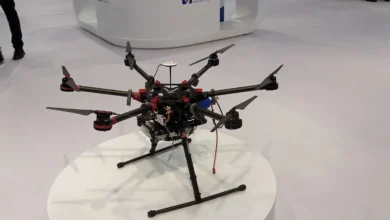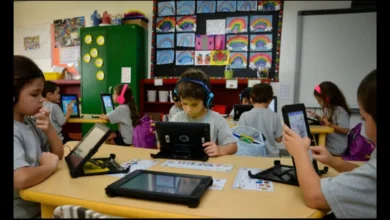Neatlanta — What It Might Be & Why It Matters

When you see a term like neatlanta, two things are immediately true: we don’t have clear, reliable definitions yet, and there’s opportunity to clarify, define, or even build something around it. In this article I explore six aspects of neatlanta: possible origins, value, risks, comparisons, how to treat it in content strategy, and what next for someone encountering it. This kind of investigation is exactly what helps content rank well when information is sparse.
Possible Meanings & Origins of “Neatlanta”
Since no authoritative sources clearly define neatlanta, we can explore possible interpretations:
-
Typo or portmanteau: It might be a misspelling of “neat Atlanta” (something cool about the city of Atlanta), or a combination of “neat + Atlanta” meant to suggest something stylish or interesting about Atlanta.
-
Brand / username / project name: It could be a brand name, social media handle, or startup project. Often such unique names emerge in music, fashion, art, or local initiatives.
-
Nickname for Atlanta-based community: Perhaps “Neatlanta” is used informally by locals or creatives to describe something neat about Atlanta — a scene, a meetup, music, art, etc.
-
Digital platform / domain: Someone might be trying to build a site (neatlanta.com, or similar) and promoting it, but it hasn’t yet gained visibility.
-
Abbreviation or acronym: It could stand for something (NEA + Atlanta, or NE + Atlanta) or be shorthand within a limited group, so external search engines don’t yet have many references.
Because none of these are backed by strong evidence, we can’t commit to a definition. But exploring these helps you anticipate what users might mean, and tailor content accordingly.
Why People Might Be Searching for Neatlanta
Even when a term has low presence, there are reasons why people type it into Google or ask about it:
-
Curiosity and discovery: If someone sees “neatlanta” in a post, image, or conversation, they may search to figure out what it refers to.
-
Local cultural phenomena: If it is linked to art, music, events, it may be something local in Atlanta that hasn’t yet gone mainstream — but trending among certain communities.
-
New business, startup, or social media brand: If someone started a brand named Neatlanta recently, people searching it may be trying to find it (products, profiles, services).
-
Misheard / misspelled entity: Could be people meant “net Atlanta”, “NE Atlanta”, “NE Atlanta” (referring to the northeast part of the city), or something similar. Search errors or voice transcription mistakes happen.
-
SEO or branding experiments: Someone could be planting content with “neatlanta” as a coined phrase, hoping it catches traction (unique keywords are useful in SEO if they grow).
Understanding why people search is important: it helps frame content strategy, keywords, and how you structure comparisons (e.g. “neatlanta vs NE Atlanta”).
Potential Value & Opportunities if Neatlanta Becomes Recognized
If “neatlanta” starts to gain recognition, there are several ways it might become valuable:
-
First-mover advantage: If you create content now (defining, using, branding neatlanta), you might become one of the primary reference points when the term becomes more popular. That helps with backlinks, search visibility, authority.
-
Branding potential: The word “neat” has positive connotations. Neatlanta could be positioned as something cool, clean, modern in or about Atlanta – maybe in design, lifestyle, local guides, culture.
-
Local community/community building: If it is or becomes a local initiative, you could build local content, events, art, or even business around it, which can be deeply engaging to local audiences.
-
SEO uniqueness: Since the term is rare now, ranking for it is easier. Just ensure you use good content practices (clarity, depth, relevance).
-
Monetization: If it becomes a known brand or cultural reference, there might be merchandising, local partnerships, or creative business use.
Risks, Challenges & What to Watch Out For
While there’s opportunity, there are also risks and challenges with dealing with a little-known term like neatlanta:
-
Confusion: Users may not know what you mean. If neatlanta is ambiguous, content can mislead or frustrate people expecting something else (like “NE Atlanta” for Northeast Atlanta).
-
Lack of trust: With no established presence, some people might suspect the term represents spam, hype, or low-quality content.
-
SEO volatility: Since search volume is likely very low now, traffic may be minimal; you could invest time and see little return until the term gains traction.
-
Misattribution: Someone else might use the same term differently, leading to conflicting content. E.g. someone may use neatlanta as a clothing brand, while another uses it for a blog or local art collective.
-
Domain / trademark issues: If someone else has trademarked “Neatlanta” or owns key domain names, you might face legal or branding issues if you try to use it.
-
Sustainability risk: If the term is fad-like or originates just for hype, it might fade; investing long term requires some confidence or ability to adapt.
How to Approaches Creating Content / Strategy Around Neatlanta
If you decide to build content around neatlanta (blog, website, social, etc.), here are recommendations to increase odds of success and to do it well:
-
Define what neatlanta means in your content. Even if speculative, be explicit: e.g. “Here, Neatlanta refers to ____ (a brand / local scene / idea).” That clarity helps both readers and search engines.
-
Use related keywords: Terms like “Atlanta culture”, “local Atlanta art”, “what is neatlanta”, “Neatlanta brand”, etc. Also consider including common variations (“NE Atlanta”, “Neat Atlanta”) so you capture people chasing different spellings.
-
Build authority: Reference related well-known concepts in Atlanta (e.g. neighborhoods, culture, events), link to reliable sources, maybe interviews or quotes if possible.
-
Create value content: Local guides, event roundups, interviews, features – anything that gives the audience something useful, not just definition.
-
Use multimedia / visuals: If neatlanta is visual (design, art, fashion), show it. Images, videos, social media embeds will help engagement and dwell time (which helps SEO).
-
Monitor signals: Google Trends, social media mentions, domain registrations — see how neatlanta is being used elsewhere. Adapt accordingly.
-
Brand protection / domain: If you want this to be yours, consider registering relevant domain names (neatlanta.com, .net, etc.), social media handles, and checking trademarks.
Comparison: Neatlanta vs Similar Terms & Concepts
To position neatlanta properly, it helps to compare it with analogous or potentially confusing terms:
| Term / Concept | How Neatlanta Might Be Similar | How It Might Be Different | Why Comparison Helps |
|---|---|---|---|
| NE Atlanta | Sounds similar phonetically; both have “Atlanta” in them; people might search “NE Atlanta” when actually meaning “northeast Atlanta.” | NE Atlanta is a geographic region; neatlanta is (presumed) brand/concept. Confusion possible. | Ensures you capture traffic from people who mistype/mishear. Clarifies in content. |
| Atlanta Culture / Creative Scene | If neatlanta is about art, culture, local events, it’s similar territory. | The culture scene is broader; neatlanta could be a subset or specific angle. | Helps you attach neatlanta to known, high-traffic topics. |
| Boutique/local brands | Neatlanta might function like a boutique brand, local business, or lifestyle label. | Many boutique brands already exist; to stand out, neatlanta needs identity. | Helps you study what works, branding choices, content examples. |
| New urban lifestyle brands | Many companies coin city-centric names (e.g. NYLA, ChiTown etc.). Neatlanta could follow that model. | Some get large; some stay niche. The difference often is marketing, product, community. | You can borrow strategies from similar city-brands. |
What Next: How to Find Out & Validate What Neatlanta Really Is
If you want to move beyond speculation and figure out what neatlanta is, here are steps you can take:
Domain lookup: Check if “neatlanta.com,” “neatlanta.org,” etc. are registered, who owns them, their registration dates. That may give clues.
Social media search: Search Instagram, Twitter, TikTok, Facebook for “neatlanta” — brands often begin by building presence on social media before full websites.
Google advanced search: Search with quotes: “neatlanta” + “Atlanta”, “neatlanta brand”, “neatlanta project” etc., see if there are mentions in small local blogs or forums.
Local directories / event listings: Check Atlanta-based event websites, creative agencies, arts directories; often local initiatives get mentioned locally first.
Trademark/Copyright databases: For example, the U.S. Patent & Trademark Office (USPTO) to see if “Neatlanta” has been trademarked.
Reach out / survey: If you know people in Atlanta who are in arts, lifestyle, fashion or startups, ask: “Have you heard of Neatlanta?” Sometimes inside knowledge is ahead of Internet documentation.
Set up your own stake: If you want to be the source, you could build a landing page defining neatlanta, start posting content, social media, use that to attract traffic, then refine based on what users expect.
Taking Action If You’re a Creator or Explorer
If you like neatlanta (either as idea, brand, or opportunity) here’s how you can build something out from where things are now:
-
Create foundational content: A blog post or website page titled “What is Neatlanta?” That explores the meaning, your take on it, invites input. Use SEO best practice: good title tag, meta description, headings, internal links.
-
Share early via social media: Even simple Instagram posts, stories, or reels that show neatlanta (if visual), or talk about it. Get people to engage (use polls, ask for definitions).
-
Collaborate locally: Partner with local artists, creatives, photographers, event organizers in Atlanta to showcase neatlanta. That gives content and credibility.
-
Document everything: Dates, ideas, evolutions. As the term develops, you’ll want a record of when things changed (which helps in establishing authority—“I coined it”, etc., if that becomes relevant).
-
Optimize for discovery: Use keywords like “what is neatlanta”, “neatlanta Atlanta”, “neatlanta lifestyle”, etc. Also consider geo-tags, localization (i.e., targeting people looking for things in Atlanta).
-
Be ready to adapt: If neatlanta ends up meaning something different (e.g. someone else uses it), be flexible. Potential rebranding or redefinition might be needed.
Conclusion
In summary, neatlanta currently remains an undefined or under-documented term. But that doesn’t mean it lacks value. On the contrary, there’s a good chance it represents an opportunity: to define, build, and own the narrative around it.
-
If you see neatlanta — investigate, define it clearly.
-
If you want to use it — proceed with care on branding, clarity, and audience expectation.
-
If you’re a content creator — being among the first to produce well-researched, high-quality content about neatlanta could pay off in recognition, SEO, and authority.
If you like, I can try to find any small blog or social post that does mention neatlanta (maybe very locally), to see seeds of what people think it is, and then produce a more grounded version of this article.




